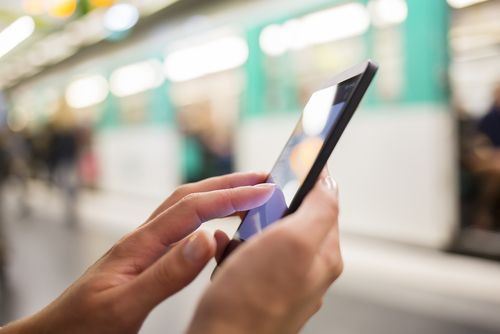'Smartphone-Loss Anxiety Disorder' Is The Result Of A Poorly-Titled Press Release; Users Are Probably Fine

Sorry, everyone who fell for the clickbait headline that suggested people can develop “Smartphone-Loss Anxiety Disorder” — it’s not true.
The research in the study, published in the International Journal of Mobile Communications, more-so focused on the general anxiety that can come with digital dependence, namely when the thing you’re dependent on is home to a lot of your personal data.
“We did not research on ‘loss anxiety’ or ‘disorder,’” Zhiling Tu of McMaster University, lead study author, told Pacific Standard. “We just tried to analyze why people would cope with device loss and what factors led people to cope with such [a] security threat.”
In other words, Tu and her team conducted research on the mere threat of losing so much data, as well as possible coping mechanisms. In addition to smartphone users, people who lose their laptops, tablets, and other digital devices can be affected.
How did (mostly) everyone lose sight of this? A poorly-titled press release, that’s how. “I was trying to be a little tongue-in-cheek with the headline, but perhaps this was not the best title to choose,” David Bradley, author of the press release, told PS.
Bradley has since changed the headline to read, “Coping with smart phone threats.” However, it’s not just Bradley. This approach is commonly taken by other press release writers and major media outlets. The idea is to formulate an attractive, shocking headline so that more readers read the content, increasing its chances of going viral. That means page views, that means advertising impressions, and so on.
Just look at The Onion’s new site called ClickHole. It's been launched to solely parody the mainstream media on both the way they write their headlines and content (which a lot of people didn’t seem to get when the site first launched).
Clickbait headlines aside, this study does offer valuable insight into the potential problems of storing so much personal data on phones that are, let's be honest, easily lost. Sixty-one percent of the study’s participants agreed their privacy would be invaded if their phone was lost. Yet 72 percent didn’t know their device could be set to automatically erase their data.
Learning to be smart with your smartphone (storing less data, creating passcodes) will lessen the amount of anxiety felt, not onset a disorder, if it's lost.
Published by Medicaldaily.com



























